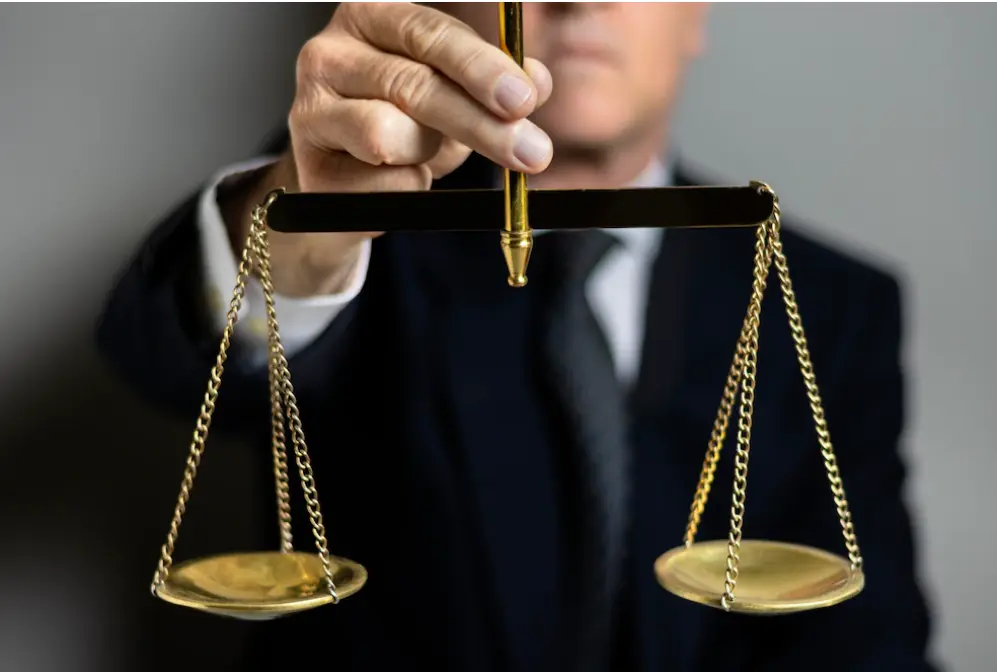
A liability claim is a legal action that requires managers or partners to bear responsibility for their actions that caused damages and losses resulting from irresponsible actions, negligence, and non-compliance with legal duties. The person who caused these actions and damages shall be liable for financial and legal costs. Therefore, there must be conclusive evidence proving the existence of wrongful action and negligence that negatively affected the financial interests of the company, shareholders, and certain other parties, which we shall discuss in this article.
Definition of liability claim:
It is a legal action carried out to claim that someone is liable for their actions or negligence that caused harm to the plaintiff. The liability claim includes many types such as civil, criminal, administrative claims, and others. The laws and procedures followed in each type of these claims differ according to the legal system in each country. However, we shall only discuss civil liability claims resulting from defects in the establishment of companies or managers/ shareholders' default under the new Saudi Companies' Law issued by Royal Decree No. (R/132) dated 01/12/1443 AH.
Who is entitled to file a liability Claim?
-
The Company
The Company, or a representative to act on its behalf in respect thereof, may file a liability claim against the manager or board members due to their mistakes, negligence or faults that cause damage to the Company.
Unless the company’s Memorandum or Articles of Association provides for a lower percentage, the partners or shareholders representing 5% of the company’s capital may file the liability claim on behalf of the Company; provided that the partners holding that percentage shall retain those shares until the lawsuit is filed, while they may waive them afterwards. Their ownership of the shares at the time the lawsuit is filed is vital.
-
Partner/ Shareholder
The partner who has suffered damage may file a liability lawsuit against the manager or board member who caused the error that justifies such claim.
-
Third Party
A third party may file a liability claim by either one of the following ways:
- Filing it against the manager or board member who caused the damage personally.
- Filing it against the company as a whole.
In any case, all directors or members of the board of directors shall be sued if one of them makes a mistake in taking a decision related to the management of the company, and they shall be jointly and severally liable unless one of them proves that he objected to this mistaken decision in writing, or that he did not attend and was not aware of the decision and had an excuse that prevented him from attending and expressing his opinion at the meeting in which the decision was made.
In any case, all directors or board members shall be sued for an error in management of the company, and they shall be jointly and severally liable unless one of them proves that he objected to this wrongful decision in writing, or that was not aware of the decision and had an excuse that prevented him from attending and expressing his opinion at the meeting in which the decision was made.
Cases of the liability of the manager, partner or board members in their private financial assets
The Saudi legislator has specified cases in which the responsibility of the manager, partner or board member is absolute and joint in all their assets, as follows:
First:
The third paragraph of Article (9) of the new Saudi Companies Law stipulates that:
If the Company’s incorporation procedures are not duly satisfied as set out in the Law, the persons executing deals or acting in the name, or on behalf, of the company shall be held personally jointly liable vis-à-vis the third parties for the actions and practices conducted by them during the incorporation period.
Second:
Article (35) of the Saudi Companies Law has defined the different legal nature of the general partnership:
The partners therein are jointly liable for their actions related to the company towards third parties. This liability is not limited to their funds in the company, but extends to all their assets.
Third:
The third paragraph of Article (64), of the Saudi Companies Law stipulates that:
For joint stock companies listed on the stock market, if the company is not registered in the Commercial Register, subscribers shall have the right to recover the amounts they paid. If the subscription is made through banks, the bank shall be obligated to return these amounts to subscribers. The founders shall be jointly liable for fulfilling this obligation and also for compensation if necessary. In addition, the founders shall bear all expenses incurred during the incorporation period, and they shall be jointly liable towards third parties for all their actions and decisions related to the incorporation.
Fourth:
In the event that several persons own a single share in a joint stock company, they shall be jointly liable for the obligations arising from such ownership pursuant to Article (103) of the Saudi Companies Law.
Fifth:
Pursuant to Saudi Companies' Law, in the event that in-kind contribution is provided upon incorporation of the company or upon increasing its capital, such a contribution shall be evaluated by an accredited valuator/ appraiser, if the in-kind share exceeds half of the capital. However, if it does not exceed this limit, it is not required to be evaluated by an accredited valuator/ appraiser. In all cases, if this in-kind share is not evaluated by an accredited valuator/ appraiser or is evaluated in another way, the founders or shareholders shall be jointly and severally liable in their funds for the fairness of this evaluation against third parties and shall pay the difference in cash to the company.
Sixth:
Before making a decision to dissolve the company, the managers and board members are obligated to examine the company's status to ensure that the company's assets are sufficient to pay off its debts and that it is not insolvent. Otherwise, the managers or members of the board of directors may not take a dissolution decision; they will be jointly and severally liable with all their assets for any remaining debt owed by the company.
Seventh:
Article (244) of the Saudi Companies Law specifies the procedures to be followed when liquidating companies:
The company's situation shall be studied to determine whether the company's assets are sufficient to settle its debts. Partners and shareholders shall be notified of the company's situation to make a decision on whether to dissolve it or not. However, if the company's situation worsens and its assets are not sufficient to settle its debts, it shall submit an application to the Competent Judicial authority to initiate liquidation proceedings in accordance with the Bankruptcy Law.
The statute of limitations for a liability claim
The statute of limitations for a liability claim is calculated based on the following:
- Five years from the end of the fiscal year in which the decision causing the error was taken, not from the date of committing the error.
- Three years from the date of termination of the service of the director or member causing the error, whichever is later, except in cases of fraud or forgery.
Acquittal of liability for the Board of Directors
Pursuant to Article 31 of the Saudi Companies Law:
The manager or board members may be acquitted of any liability and shall be deemed to have performed his duty in the decision he made or voted on in good faith, in the following cases:
- They have no interest in the subject of the decision.
- They have been informed and verified the subject of the decision before issuing it or voting.
- They have believed with certainty that the said decision is in the interest of the company.
In all cases, the burden of proof falls on the plaintiff, as the basic principle is having good faith, and proving otherwise falls on the plaintiff.
Conclusion:
The liability claim under the Saudi Companies' Law is a vital legal mechanism to ensure the achievement of justice and protect the rights of third parties and institutions. This is achieved through a clear legal organization to determine liability and protect all investment parties, work to create a legal environment that enhances investments, and ensure the provision of all possible legal mechanisms to protect such investments.
Are you facing difficulties in understanding or applying the provisions of the Liability Claims against directors and partners under the Saudi Companies Law?
No need to worry!
Saadani & Partners Law Firm offers you extensive experience in this field, through a team of highly qualified specialized lawyers.
Our services:
- Providing thorough understanding of the laws and regulations related to the liability of directors and partners under the Saudi Companies Law.
- Comprehensive analysis of your case and providing the best legal solutions to file a liability lawsuit or defend yourself against one.
- Representing you with the highest level of skill and professionalism before all concerned parties.
- Fully maintaining your rights and interests.
Contact us now and get a free consultation!
• Phone: + (20) 1069460940
• Email: info@sadanypartners.com
 English
English

 العربية
العربية
 中文语言
中文语言
 русский язык
русский язык
 Le français
Le français
 Española
Española



